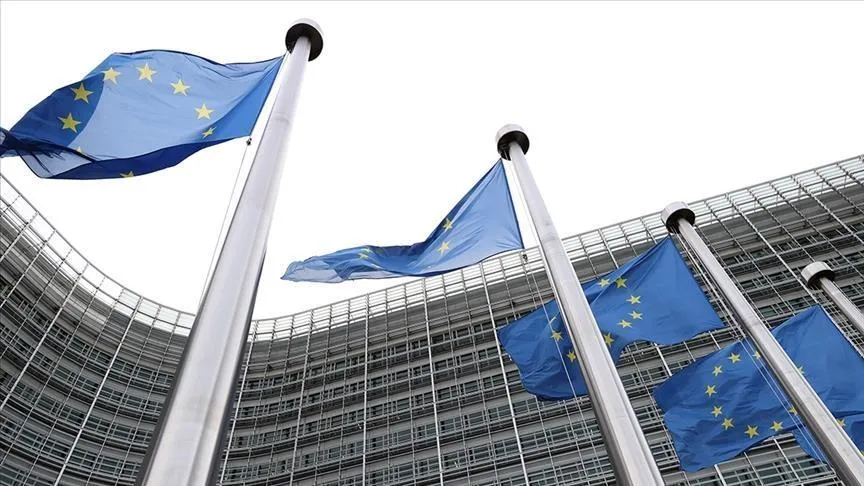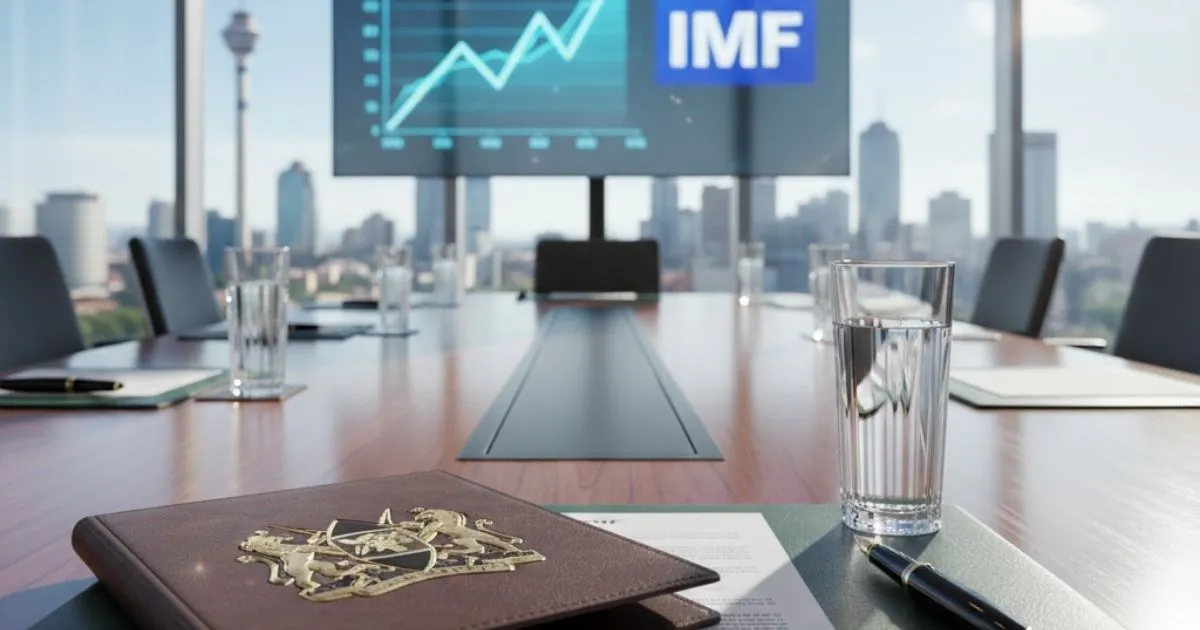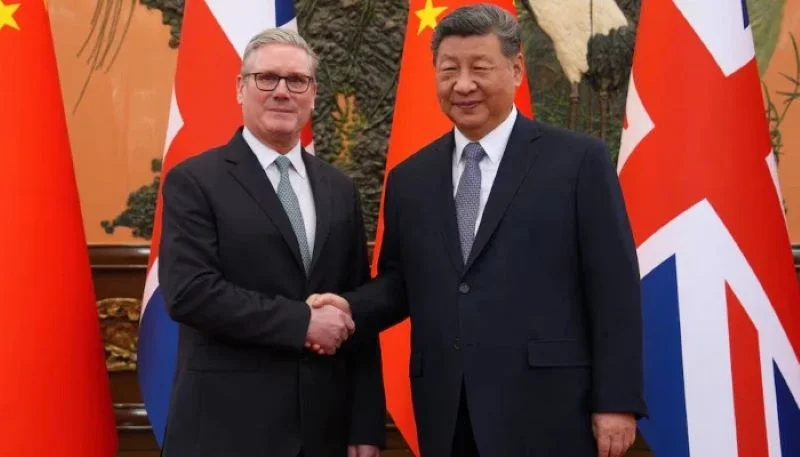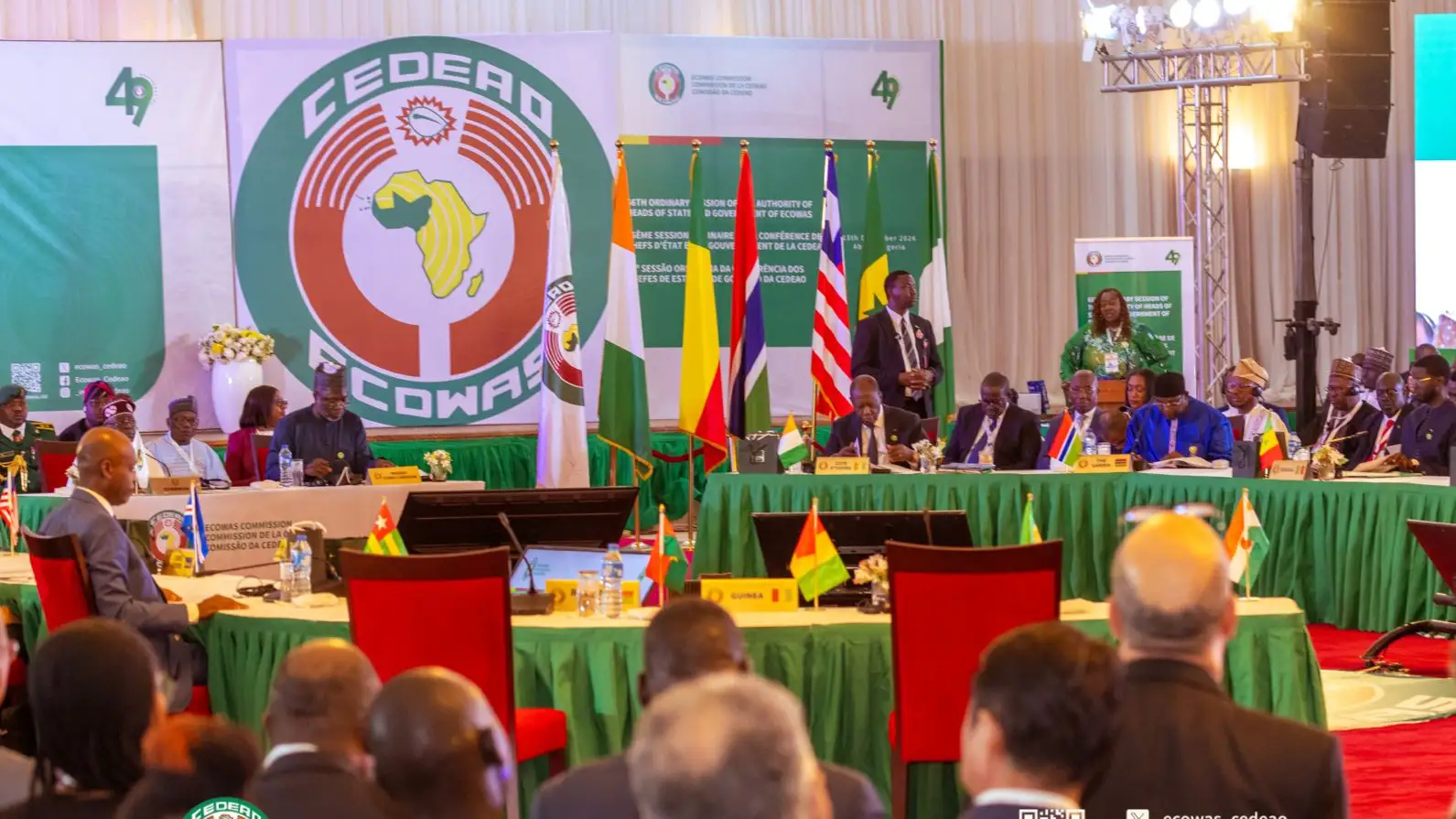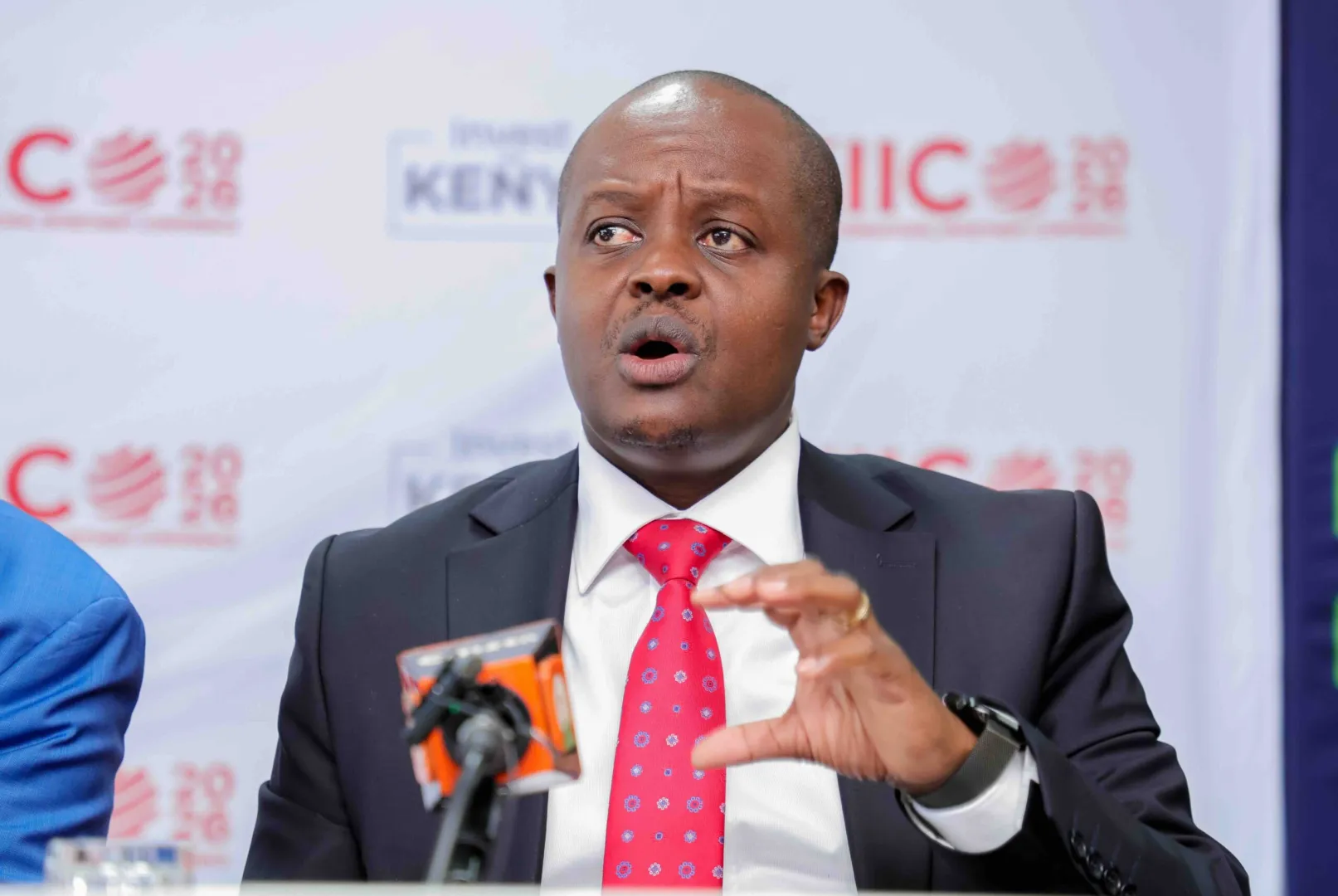The robust economic ties between Egypt and Germany continue to strengthen, with their bilateral cooperation portfolio now reaching an impressive €1.6 billion (approximately $1.74 billion). This significant figure, announced by Egypt’s Minister of Planning, Economic Development, and International Cooperation, Dr. Rania Al-Mashat, underscores a deepening strategic partnership aimed at fostering sustainable economic development across a multitude of critical sectors.
Minister Al-Mashat’s remarks came during her meeting with German politician Reem Alabali-Radovan, on the sidelines of the Fourth International Conference on Financing for Development (FfD4). The discussions highlighted a shared commitment to implementing transformative development projects in key areas such as energy, climate change, water supply, and migration, all of which are vital for Egypt’s long-term prosperity and stability. This burgeoning collaboration reflects Germany’s growing interest in Egypt as a pivotal partner in North Africa and the broader Middle East, driven by shared economic, environmental, and geopolitical objectives.
The Expanding Economic Portfolio: A Multi-Sectoral Approach
The €1.6 billion bilateral economic cooperation portfolio is a testament to the comprehensive nature of the Egypt-Germany partnership. It is designed to address some of Egypt’s most pressing developmental challenges while aligning with its ambitious national strategies, particularly Egypt Vision 2030. The joint projects are meticulously planned to contribute to sustainable economic growth, enhance resilience, and improve the quality of life for millions of Egyptians.
Energy and Climate Change: Powering Egypt’s Green Transition
Energy and climate change stand as cornerstones of this cooperation. Egypt, a nation blessed with abundant solar and wind resources, is on an ambitious trajectory to transform its energy landscape. The country aims to increase the share of renewable energy in its electricity generation mix to 42% by 2030, with projections suggesting this could reach 65% by 2040. German support is instrumental in achieving these targets.
A significant component of this collaboration is the focus on large-scale renewable energy projects. The original financial cooperation agreement signed in 2022 included soft financing and grants for the connection project related to ACWA Power 1 and 2, which are expected to generate 1,100 megawatts (MW) of wind power. This is part of a much larger commitment by ACWA Power, a Saudi-based developer, which recently signed a Power Purchase Agreement (PPA) for a 2 GW (2,000 MW) wind project in Hurghada. This monumental project, valued at approximately $2.3 billion, will become the largest wind farm in Egypt, surpassing ACWA Power’s existing 1.1 GW Suez Wind Farm, and is targeted for financial close in 2026. Once operational, it is expected to reduce carbon dioxide emissions by over 3.5 million tonnes annually, significantly contributing to Egypt’s climate mitigation efforts. Germany’s financing for the connection of such large-scale wind farms is crucial for integrating this clean energy into the national grid.
Furthermore, Germany has been a key partner in Egypt’s flagship climate initiative, the Nexus of Water, Food, and Energy (NWFE) program. Launched as a cornerstone of Egypt’s efforts at the COP27 climate conference held in Sharm el Sheikh, NWFE aims to mobilize climate finance and private investments to support Egypt’s green transition. The program’s energy pillar specifically targets the decommissioning of 5 GW of outdated and inefficient fossil fuel power plants, making way for the installation of 10 GW of new renewable energy capacity and necessary grid infrastructure investments. Germany’s contribution to NWFE’s energy-related projects during COP27 amounted to a substantial €258 million, comprising concessional financing, debt swaps, and financial contributions. The European Bank for Reconstruction and Development (EBRD) is a lead partner for the energy pillar of NWFE, working to facilitate these transformational private climate investments and address financial and institutional bottlenecks.
Egypt’s commitment to renewable energy is also evident in other massive projects, such as the Benban Solar Park, one of the world’s largest solar energy complexes, and the expansion of wind farms in the Gulf of Suez, including Gabal El-Zeit. The long-term vision includes developing green hydrogen and green ammonia production facilities within the Suez Canal Economic Zone, with partnerships involving companies like Norway’s Scatec and Germany’s DHL. These initiatives not only support Egypt’s decarbonization goals but also position it as a potential hub for clean energy exports to Europe, further strengthening energy security for both continents.
Addressing Water Scarcity: A Critical Partnership
Water security is another paramount concern for Egypt, a nation heavily reliant on the Nile River. The country faces an alarming annual water deficit of around seven billion cubic meters, with some estimates suggesting a risk of absolute water scarcity by 2025. Climate change exacerbates this challenge, making efficient water management and alternative water sources crucial.
German expertise and financial support are vital in addressing these challenges. While specific large-scale water projects under the current €1.6 billion portfolio were not detailed in the initial news, German development cooperation has historically focused on the water sector and waste management in Egypt. This includes potential support for:
- Desalination Plants: Investing in modern, energy-efficient desalination technologies to augment freshwater supplies from the Red Sea and Mediterranean.
- Wastewater Treatment and Reuse: Developing advanced systems for treating wastewater to be reused for irrigation or industrial purposes, thereby conserving freshwater resources.
- Irrigation Efficiency: Implementing smart irrigation techniques and technologies to reduce water waste in agriculture, which accounts for the vast majority of Egypt’s water consumption.
- Water Management Infrastructure: Supporting the development and modernization of water distribution networks to minimize losses and ensure equitable access.
The NWFE program also includes a dedicated water pillar, with the African Development Bank (AfDB) as a key partner in funding the preparation of technical studies for five renewable energy-powered water desalination plants. German involvement in this area, whether directly or through multilateral mechanisms, is critical for Egypt’s long-term water resilience.
Migration and Skills Development: Investing in Human Capital
The “migration” component of the bilateral portfolio reflects a shared understanding between Egypt and Germany regarding the complex dynamics of migration, encompassing both its challenges and opportunities. Cooperation in this area often focuses on addressing the root causes of irregular migration, facilitating legal pathways, and supporting the reintegration of returnees.
A key initiative in this regard is the Egyptian-German Center for Jobs, Migration and Reintegration (EGC). This center, supported by German development partners, plays a crucial role in providing vocational training, job placement services, and reintegration support for Egyptians, both those seeking opportunities abroad through legal channels and those returning to Egypt. By enhancing skills and creating employment opportunities, such initiatives aim to reduce the drivers of irregular migration and promote orderly, safe, and dignified migration.
This ties directly into the Comprehensive Technical Education Initiative, a significant part of the 2022 financial cooperation agreement, valued at €118 million. This initiative specifically supports the establishment of 25 Centers of Excellence (CoEs) and applied technology schools. These centers are crucial for:
- Bridging the Skills Gap: Equipping Egyptian youth with the practical and technical skills demanded by the modern job market, particularly in high-growth sectors like renewable energy, manufacturing, and digital technologies.
- Enhancing Employability: Providing industry-relevant training that directly leads to employment opportunities, both domestically and potentially internationally.
- Fostering Innovation: Creating a skilled workforce capable of driving innovation and productivity across various economic sectors.
- Supporting Economic Diversification: Building human capital that can support Egypt’s transition to a knowledge-based economy, reducing reliance on traditional sectors.
The focus on TVET (Technical and Vocational Education and Training) is a strategic investment in Egypt’s demographic dividend, transforming its large youth population into a skilled and productive workforce.
The Debt Swap Program: Innovative Financing for Sustainable Development
A highlight of the ongoing cooperation is the Egyptian-German debt swap program, hailed by Minister Al-Mashat as a “practical model for restructuring the global financial system.” A debt swap mechanism allows a debtor country (Egypt) to reduce its foreign currency debt obligations to a creditor country (Germany) in exchange for the debtor country making local currency investments in agreed-upon development projects. This innovative financing tool provides debt relief while simultaneously channeling funds into critical national priorities.
Minister Al-Mashat announced the signing of a new tranche under this program, valued at €21 million, specifically earmarked to enhance renewable energy supplies. This latest tranche builds on a successful history of cooperation, bringing the total value of debt swap installments between Egypt and Germany to €297 million (approximately $338 million).
The Egyptian-German debt swap program, which began in 2011, has been instrumental in financing various development projects across Egypt, including those in education, health, and environmental protection. Its governance structure ensures optimal implementation and transparency, making it a model for other bilateral and multilateral partnerships. The new tranche, scheduled to be activated in December 2025, further solidifies Germany’s commitment to supporting Egypt’s green transition through creative financial mechanisms.
Germany’s Strategic Interests: A Mutually Beneficial Partnership
Germany’s deep and expanding engagement with Egypt is rooted in a confluence of strategic interests that extend beyond traditional development aid. Egypt occupies a pivotal geopolitical position, serving as a bridge between Africa, the Middle East, and Europe, and playing a crucial role in regional stability.
- Energy Security and Green Hydrogen: For Germany, a nation committed to decarbonization and reducing its reliance on fossil fuels, Egypt represents a promising partner for energy security. Egypt’s vast renewable energy potential, particularly for solar and wind power, makes it an ideal location for green hydrogen production. Germany is actively seeking reliable sources of green hydrogen to fuel its industries and achieve its climate targets. Projects like the Egypt-Europe Electricity Interconnection Project, which links Egypt’s grid with Greece and Cyprus via the EuroAfrica Interconnector, further reinforce Egypt’s role as a potential exporter of clean energy to Europe.
- Regional Stability and Migration Management: Egypt’s stability is vital for regional security. Germany has a vested interest in supporting Egypt’s economic development and social cohesion to prevent instability that could lead to increased irregular migration flows towards Europe. Cooperation on migration, including addressing root causes through job creation and skills development, is therefore a key component of Germany’s foreign policy in the region.
- Economic Opportunities and Market Access: Egypt, with its large population of over 100 million and growing economy, represents a significant market for German goods and services. The bilateral trade volume between the two countries reached approximately €5.4 billion in 2024, demonstrating robust commercial ties. German companies are actively involved in various sectors, from manufacturing to infrastructure development.
- Cultural and Educational Exchange: Germany also places a strong emphasis on cultural relations and education. With seven German Schools in Egypt educating some 4,000 pupils, and extensive German language programs at 36 Egyptian universities, cultural exchange fosters deeper understanding and long-term partnerships. German academic institutions and the German Academic Exchange Service (DAAD) also maintain a strong presence, supporting higher education and research.
German development banks like KfW and agencies like GIZ are key implementers of these cooperation projects on the ground, ensuring technical expertise and effective project management. Their long-standing presence and experience in Egypt contribute significantly to the success of the bilateral portfolio.
Egypt’s Vision 2030: A Blueprint for a Sustainable Future
The German cooperation aligns seamlessly with Egypt’s overarching national development strategy, Vision 2030. This ambitious blueprint aims to transform Egypt into a knowledge-based, competitive, and diversified economy that is socially just and environmentally sustainable. The key pillars of Vision 2030 that are directly supported by the German partnership include:
- Economic Development: Diversifying the economy, attracting foreign investment, and creating job opportunities, particularly for the youth.
- Energy Security and Sustainability: Transitioning to a clean energy mix, enhancing energy efficiency, and developing new energy sources like green hydrogen.
- Water Security: Efficiently managing water resources, developing non-traditional water sources, and improving irrigation systems.
- Human Capital Development: Investing in education, vocational training, and skills development to empower the workforce.
- Environmental Sustainability: Addressing climate change impacts, promoting green technologies, and enhancing environmental protection.
Egypt’s strategic location also positions it as a regional energy hub, with ongoing electricity interconnection projects linking its grid with Saudi Arabia, Sudan, Jordan, Greece, and Italy. This network will facilitate the export of surplus renewable energy, further enhancing Egypt’s economic and geopolitical significance.
Conclusion: A Partnership Poised for Greater Heights
The bilateral economic cooperation between Egypt and Germany, now valued at €1.6 billion, represents a dynamic and forward-looking partnership. It is characterized by a shared commitment to sustainable development, innovative financing mechanisms like the debt swap program, and a focus on critical sectors that are vital for Egypt’s future and Germany’s strategic interests.
From powering Egypt’s green transition with massive wind energy projects and supporting its NWFE climate initiative, to addressing the pressing challenges of water scarcity and investing in human capital through technical education and migration cooperation, the scope of this partnership is extensive and impactful. Germany’s consistent support, underpinned by its development banks and agencies, reinforces its role as a reliable and strategic ally for Egypt.
Minister Al-Mashat’s invitation to the German official to visit Egypt and follow up on joint projects underscores the collaborative spirit and the mutual desire to ensure the effective implementation and tangible benefits of these initiatives. As both nations navigate global economic shifts and environmental imperatives, their deepening alliance stands as a testament to the power of international cooperation in forging a more prosperous, stable, and sustainable future. The continued activation of debt swap tranches and the ongoing dialogue at high-level forums promise even greater heights for this pivotal bilateral relationship.
Ready to take your career to the next level? Join our dynamic courses: ACCA, HESI A2, ATI TEAS 7 , HESI EXIT , NCLEX – RN and NCLEX – PN, Financial Literacy!🌟 Dive into a world of opportunities and empower yourself for success. Explore more at Serrari Ed and start your exciting journey today! ✨
photo source: Google
By: Montel Kamau
Serrari Financial Analyst
3rd July, 2025
Article, Financial and News Disclaimer
The Value of a Financial Advisor
While this article offers valuable insights, it is essential to recognize that personal finance can be highly complex and unique to each individual. A financial advisor provides professional expertise and personalized guidance to help you make well-informed decisions tailored to your specific circumstances and goals.
Beyond offering knowledge, a financial advisor serves as a trusted partner to help you stay disciplined, avoid common pitfalls, and remain focused on your long-term objectives. Their perspective and experience can complement your own efforts, enhancing your financial well-being and ensuring a more confident approach to managing your finances.
Disclaimer: This article is for informational purposes only and does not constitute financial advice. Readers are encouraged to consult a licensed financial advisor to obtain guidance specific to their financial situation.
Article and News Disclaimer
The information provided on www.serrarigroup.com is for general informational purposes only. While we strive to keep the information up to date and accurate, we make no representations or warranties of any kind, express or implied, about the completeness, accuracy, reliability, suitability, or availability with respect to the website or the information, products, services, or related graphics contained on the website for any purpose. Any reliance you place on such information is therefore strictly at your own risk.
www.serrarigroup.com is not responsible for any errors or omissions, or for the results obtained from the use of this information. All information on the website is provided on an as-is basis, with no guarantee of completeness, accuracy, timeliness, or of the results obtained from the use of this information, and without warranty of any kind, express or implied, including but not limited to warranties of performance, merchantability, and fitness for a particular purpose.
In no event will www.serrarigroup.com be liable to you or anyone else for any decision made or action taken in reliance on the information provided on the website or for any consequential, special, or similar damages, even if advised of the possibility of such damages.
The articles, news, and information presented on www.serrarigroup.com reflect the opinions of the respective authors and contributors and do not necessarily represent the views of the website or its management. Any views or opinions expressed are solely those of the individual authors and do not represent the website's views or opinions as a whole.
The content on www.serrarigroup.com may include links to external websites, which are provided for convenience and informational purposes only. We have no control over the nature, content, and availability of those sites. The inclusion of any links does not necessarily imply a recommendation or endorsement of the views expressed within them.
Every effort is made to keep the website up and running smoothly. However, www.serrarigroup.com takes no responsibility for, and will not be liable for, the website being temporarily unavailable due to technical issues beyond our control.
Please note that laws, regulations, and information can change rapidly, and we advise you to conduct further research and seek professional advice when necessary.
By using www.serrarigroup.com, you agree to this disclaimer and its terms. If you do not agree with this disclaimer, please do not use the website.
www.serrarigroup.com, reserves the right to update, modify, or remove any part of this disclaimer without prior notice. It is your responsibility to review this disclaimer periodically for changes.
Serrari Group 2025












